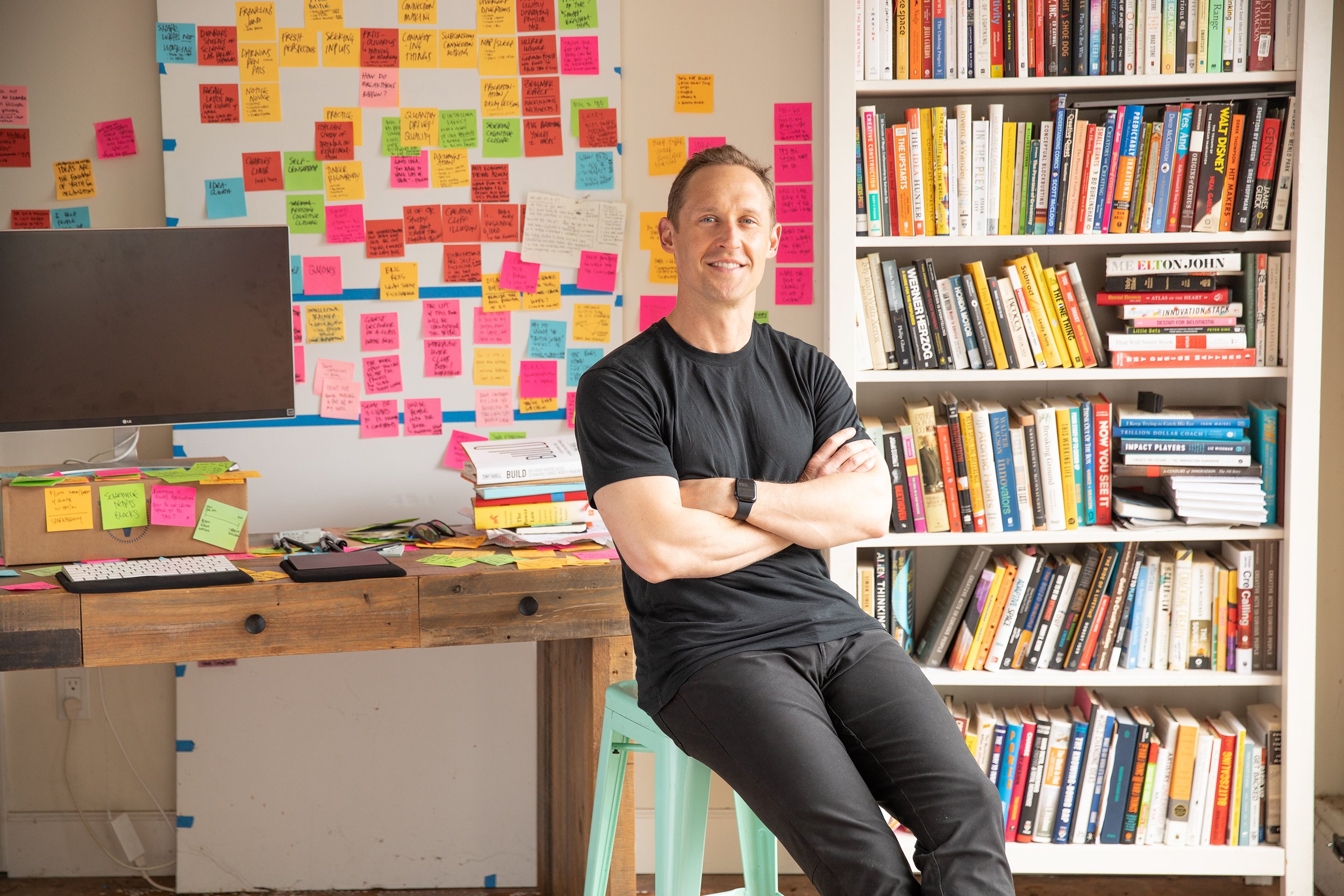
Methods of the Masters
A blog on the art & science of creative action.
Cultivate Curiosity
A stratospheric success at Google might never have reached escape velocity if folks weren’t allowed to indulge pet projects. Here’s the inside scoop.
Keep A Bug List
David Kelley advises his students to make a practice that’s been taught at Stanford for decades. It’s the same thing Seinfeld does, and it’s a simple technique anyone wanting to do some breakthrough thinking can employ.
Preserve A Little Slack
By now, you’ve probably heard about Beeple’s record-shattering sale of “Everydays” for over $69 million. But do you know how the sale came to pass? Perry and I had an opportunity to talk to the team inside Christie’s who pulled off the landmark transaction…
Involve Yourself In Folly
Ato Essandoh is a New York-based actor and the co-host of the podcast Radio Zamunda. I was instantly drawn to his warm, openness, and curiosity. He told me about his regular Friday night gatherings of artists and friends in New York. They often challenge themselves to make something together, without regard for the final product: “It's OK if it looks like we made a mistake…”
The Bug List
The other day, my friend and mentor David Kelley told me about a famous old assignment legendary Stanford professor Bob McKim used to give his students: he would tell them to keep a bug list. Mind you, this was decades before programming language became common parlance…
Indulge a Little Curiosity
Curiosity defines genius, but many of us stifle curious impulses in favor of more "relevant" searches; if we can't rationalize an interest, it gets jettisoned pretty quickly in the name of focus. The irony is, some of history's most prolific and inventive thinkers were insanely curious! Nobel Prize winner Richard Feynman is an excellent example of a curious life…
Willing to Go Off-Road
My friend Philipe Barreaud runs the Customer Innovation Lab for Michelin. He’s the kind of guy who tells the technicians to “hang the sign upside down” in the main office, just to signal the value of seeing things differently and challenging people’s perceptions…
From Burnout to Breakthrough
The end of the story is, he wins the Nobel Prize. The unexpected part was the twist in the middle of the roller coaster…
Who asks the important questions?
Dr. Rakesh Suri, MD, Chief Executive Officer and Chair of Thoracic and Cardiovascular Surgery at Cleveland Clinic Abu Dhabi, took an unexpected approach to leading in the face of COVID. Apparently, when the pandemic hit, one thing he required was that a novice be added to every department…
Ideaflow
When the pandemic hit, Perry and I started exploring work on a book. After months of fits and starts, we settled on a topic and put it in front of a few publishers. We were humbled by the response. During the holidays, we were offered a deal by Penguin Random House's business imprint, Portfolio. We are pretty excited about it. Should be out next fall, 2022…
An R&D mystery
My friend Mar Hershenson and I have been speaking with some amazing female founders lately. In a recent conversation, Mar asked a spectacular question that led to a profound insight:
Reviewing Old Notes
"A link between a problem and a solution depends heavily on the simultaneity of their 'arrivals.'” - Jim March in his classic HBR Interview, "Ideas as Art" Unless you're often pondering the challenge of putting new things into the world, this obscure quote might be a bit of a head scratcher. 'Simultaneity of arrivals'?? I know…
Lowering the Cost of Failure
Shortly after I wrote yesterday's post about the Toy Story 3 team at Pixar, a longtime friend and mentor sent me Mark Rober's TED Talk, "The Super Mario Effect". I'd seen it a while ago, and thoroughly enjoyed it, so I almost archived the message without much thought; but his email made me curious to review it, and I'm glad I did!
The Quest Mentality
Jim March is a legendary organizational theorist* who posited that organizations create value (or "new knowledge") in one of two ways: either by exploring new possibilities or exploiting old certainties (ie executing known opportunities with known resources). His research dealt with how to balance the tradeoffs inherent in larger organizations seeking to do a bit of both, as they generally compete for the same pool of scarce resources…
The Founder Comes First
The fundamental atomic structure of an innovation is comprised of at least two molecules: the idea and the founder. While these two are inseparably linked, the natural tendency is to overly-fixate upon the idea side of the compound…
Inspiring Inspiration-Seeking
Did you know that a classic innovation that reinvented the athletic shoe category came from gazing upon a kitchen appliance? Much like Apple's Steve Jobs was inspired by Cuisinart, Nike had its own flash of inspiration - albeit in the grip of a different appliance. The two stories that follow taken from the exceptionally-entertaining, "Shoe Dog," by Nike's creator, Phil Knight…
Time for crazy experiments
"Dr. Smithies was meticulous about his work… the only exceptions were what he called his Saturday morning experiments. 'On Saturday mornings, you can do whatever you want.' He felt free to doodle, like a child with finger paints, to have fun and to free his imagination…”
Leveraging Analogies, Pt 2
Over the weekend I remembered a relevant post-script to my post on analogies last week. This one sheds light on what kinds of analogies yield the biggest impact in terms of idea generation potential…
Deliberately Random Lunch Date
I was struck by this story about Bill Baker, the head of Bell Labs' research division, and a simple daily practice he employed to fuel his own creative practice.
"Every day at lunch he would sit down with the first person he spotted in the cafeteria, whether he was a glassblower from the vacuum tube shop or a metallurgist from the semiconductor lab -- 'Is it okay if I join you?' he would ask politely, never to be refused -- and would gently interview the employee about his work and personal life and ideas. 'At the end of any conversation,' Baker's friend and colleague Mike Noll recalls, 'you would then realize that he knew everything about you but you would know absolutely nothing about him…




















